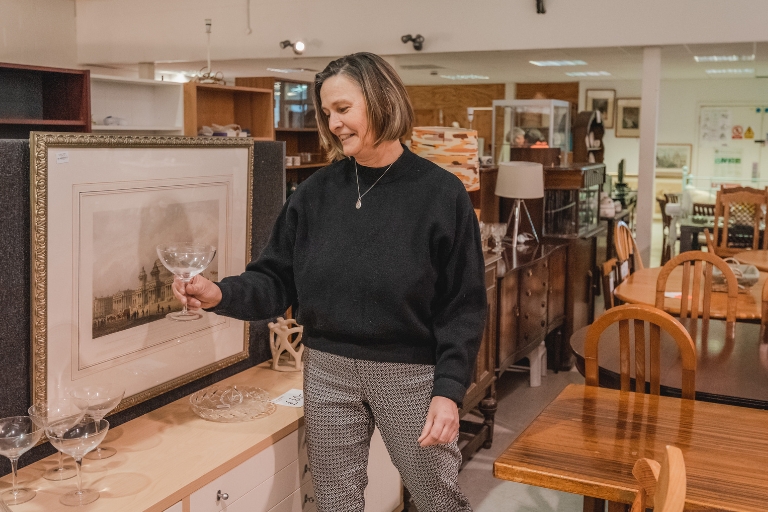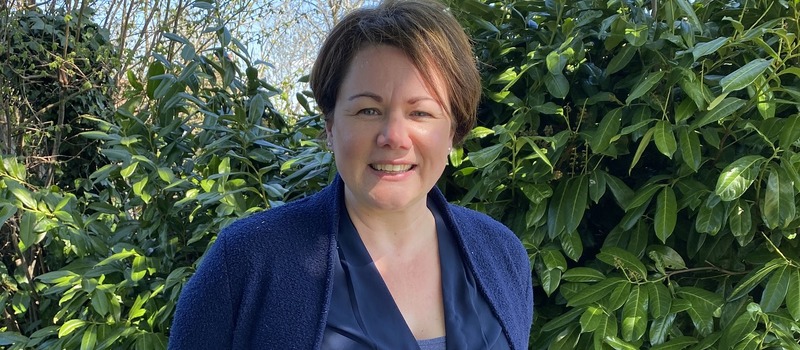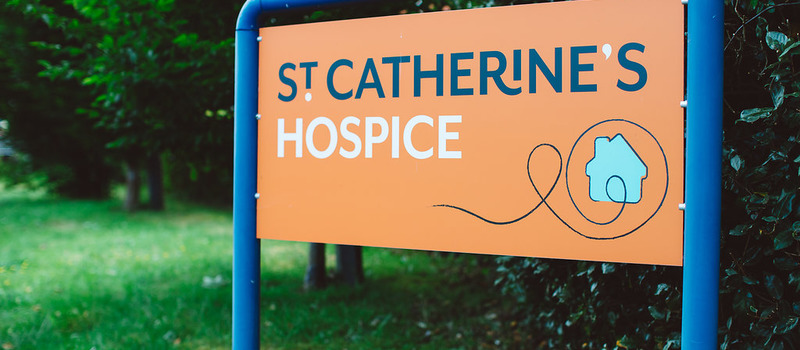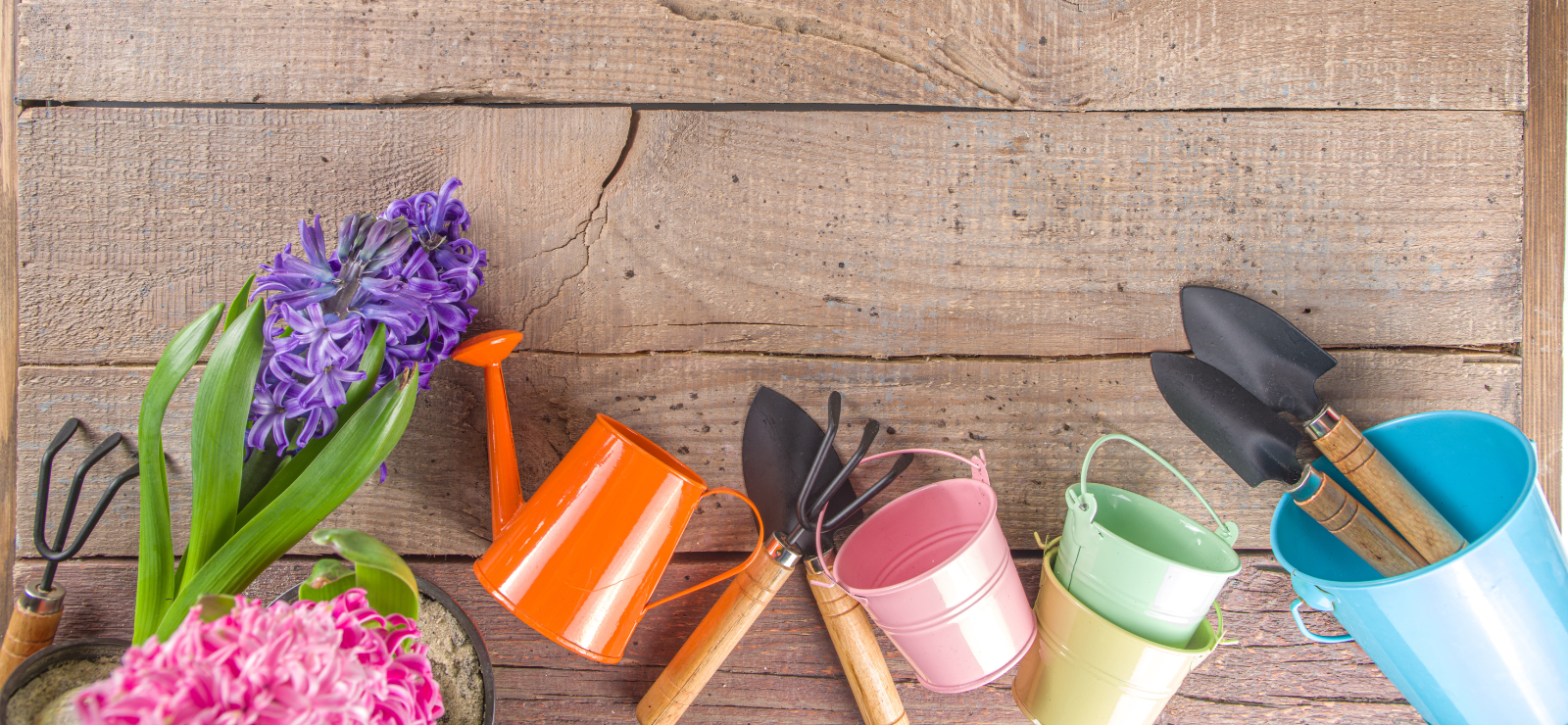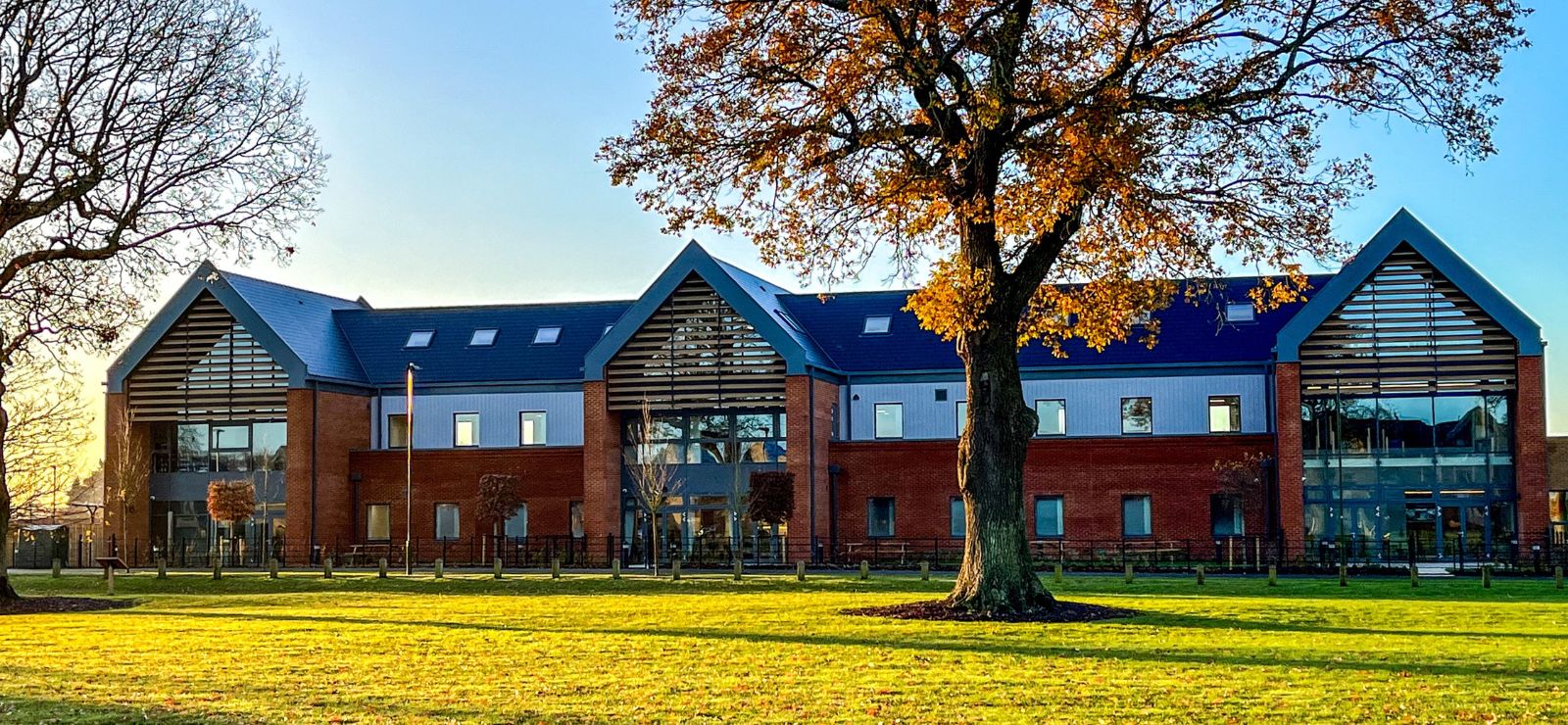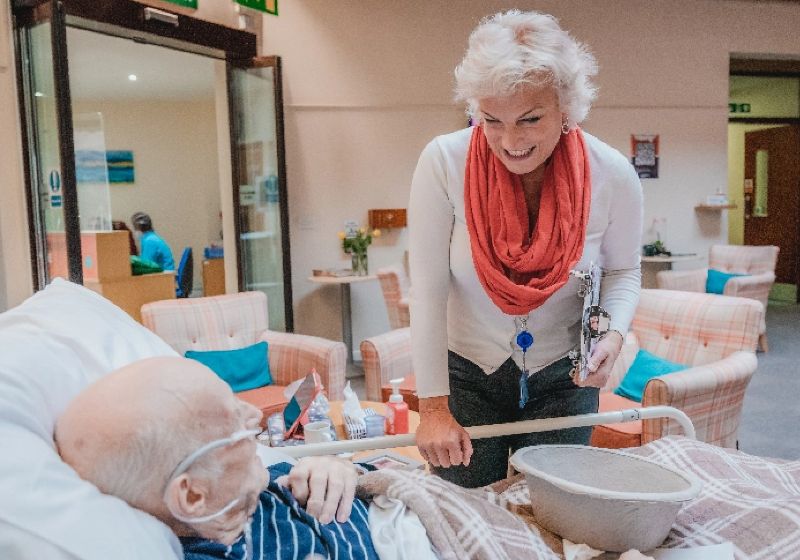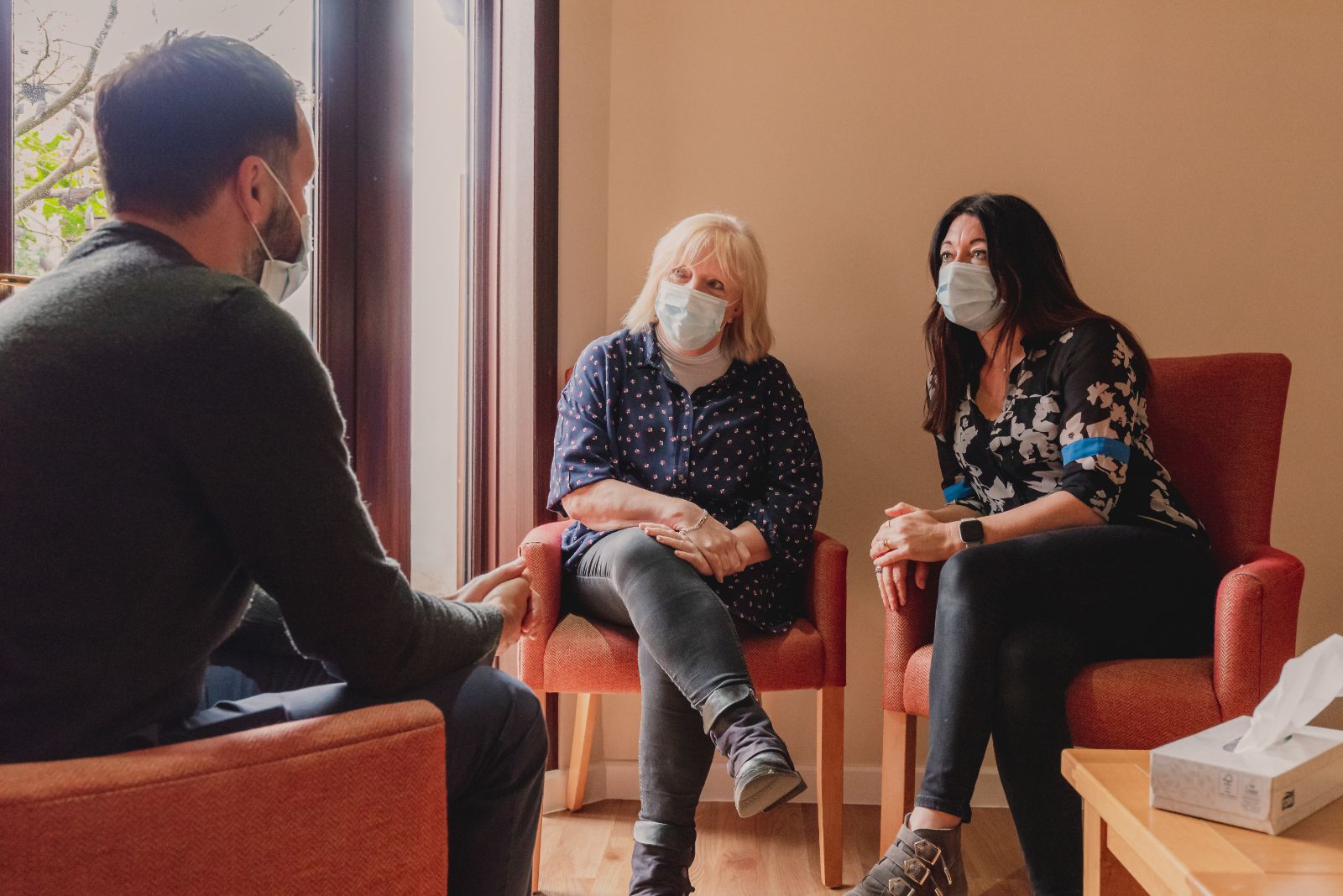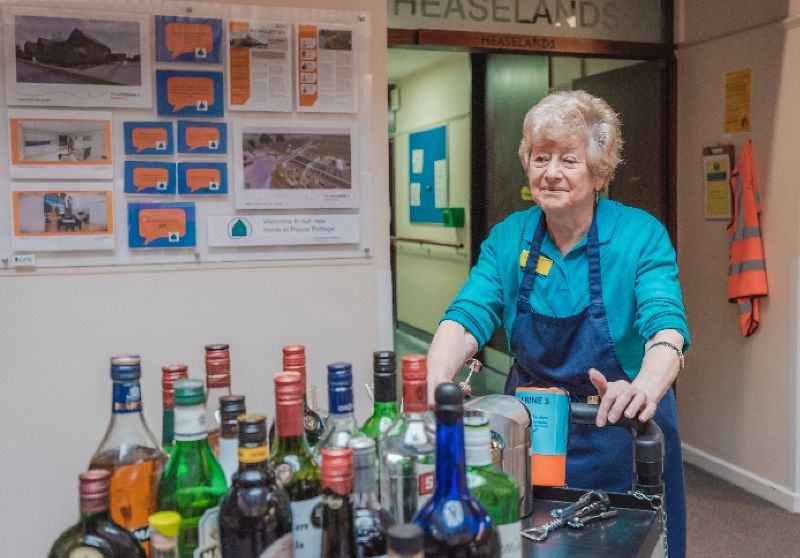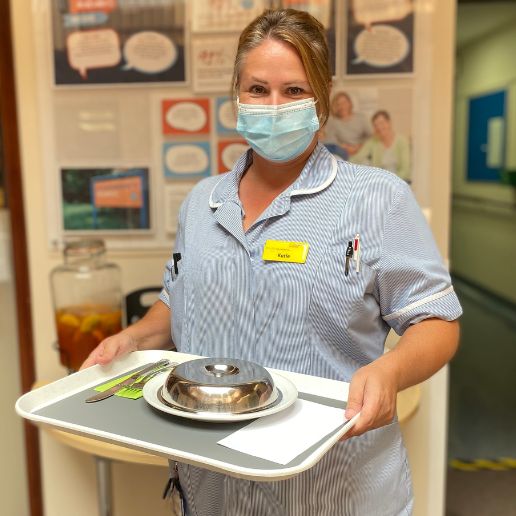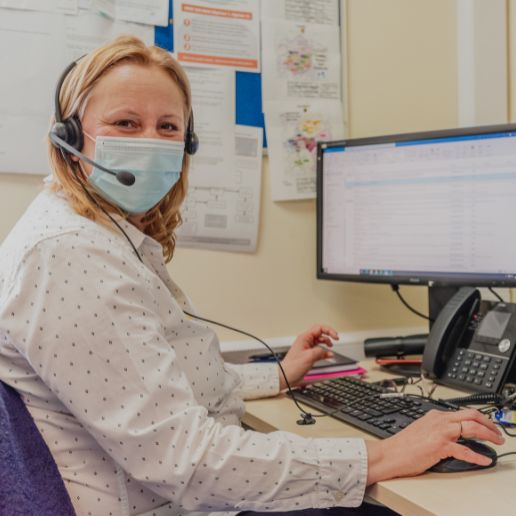“I’m in awe of my Healthcare Assistant colleagues”
Natalie Clow, one of our Senior Staff Nurses (SSNs) shares more about her role and why she’s in awe of her Healthcare Assistant colleagues.
“I started working with St Catherine’s as a Bank Senior Staff Nurse (SSN) in January 2022. As well as working across the community and our wards doing shifts on Sundays I also work on training packages for our Healthcare Assistants (HCAs) twice a week.
I worked as a District Nurse for 10 years, alongside lots of different disciplines, but have come back to nursing after 3 years out
I’ve previously worked in a team developing and delivering training for care home staff, so when I started at the hospice, I was asked to consider developing training for St Catherine’s and to work on training packages for our HCAs. I love education so happily said yes
The training I’m developing is different to other training that our HCAs usually do as it’s very generic, but this is specifically around palliative care and has a St Catherine’s twist! It consists of 6 taught modules and a presentation on a quality improvement initiative that the HCA would like to implement internally. HCAs will present these to SMT and we’re hoping some of their initiatives will be taken forward and implemented within the hospice in time. Our HCAs are very keen to have this training. When we piloted it with some of them in March we had really good feedback. We’ll be rolling it more fully next month so watch this space!
I love working at St Catherine’s
Often people think a hospice is doom and gloom and the public often think of it as a miserable job but it’s what we know, what we do and we’re really good at it here.
The hospice is an amazing place to work
Everyone does this job because they love it. They want to give great service to people dying, and they really believe in our service. I’ve never worked with such a close knit, compassionate group of people who genuinely care about the people we look after and each other. It’s nice
I’m so proud of the Hospice at Home team too
There is something special about caring for someone in their own home
The Hospice at Home team are an integral component of our community care, bringing end of life care skills, ethos and practical care into people’s home environments; putting our patients and those who matter to them at the centre of any care. I’m inspired every time I work with this team. They’re often all disciplines rolled into one in the ‘moment’ a patient needs us.
And they were one of our teams who continued to work throughout the pandemic, before we all had jabs and people were testing. Although everyone wore PPE, at that time being out providing care in the community was probably riskier than being in other hospice teams. Lots of other external teams stopped going out, offering their care virtually and by telephone, but this team kept going throughout.
As SSNs and HCAs we go out into people’s homes. As nurses, we do assessments and reviews of people referred to us.
Our HCAs will more often than not care for patients on our caseload, giving hands on personal care to those in their final days and weeks
The most common things we help people with in the community is managing the symptoms of their illness when they’re experiencing more pain or are deteriorating
We’re always at the end of the phone and patients and relatives like that. They can ring in and have a friendly, helpful response at the other end. As SSNs we are often doing signposting people to GPs or District Nursing teams who can support them or speaking with CHC (Continuing Healthcare) for funding when people are less well and need a package of care. We visit patients at home when their symptoms change and become less well, to make assessments, spend time with people and make them feel supported in their decisions at the end of their lives.
Working in the community and on our wards means I get an insight into both these worlds to help me when I’m working on training packages
It’s opened my eyes to how, although we’re one team, we work quite differently in the community and on our wards.
One aim of the training I’m developing is to make things more of an equilibrium, and to help provide a career pathway for our HCAs
For example, I was stunned that our community HCAs go out to visit and provide care to people alone
They’re amazing and go above and beyond and they don’t always get recognition for what they do. They rely on their own autonomy and judgements and it’s often our HCAs who have difficult conversations with patients and families.
There was one time a HCA told me they were giving a patient care in bed and they rolled over and asked “Am I dying?” Those type of questions are often the ones people will ask when someone is delivering care
Another time I was shadowing one of our HCAs. We visited a patient who had died although the relative was unaware. My HCA colleague truly inspired me with their empathy and compassion. With a deep breath and a lot of courage she became the expert professional in that moment. I haven’t worked in an environment where staff were in situations like this before. Despite the pressure on her of my presence and that of many relatives, she approached things with an honest, dignified and human approach to explain that the patient had sadly died.
Our HCAs do so well. They manage many different scenarios and must think on their feet because we only have one shot to make sure someone has a positive death
I’m in awe of them and the conversations they have
Sometimes when I’ve heard them speaking to a patient or relative I think “I’d never have thought of saying that” so you learn from each other. In our roles you have to build therapeutic relationships and a rapport quickly with people as they often deteriorate. Sometimes it’s hard when you’ve never met someone before and you have to go into their home and have conversations about where they want to die or to tell them yes, you’re dying.
You often have to manage family dynamics too; they can be the hardest thing sometimes
Different people respond differently to the emotions associated with death and dying, and often we have to navigate the feelings relatives express as well as caring for their loved one which can be challenging. A patient’s home environment is generally one where they feel most comfortable and safe and our team are so connected to the patients they care for and their loved ones, always showing respect being in someone else’s home.
This team are the sort of team who’ll just pop in to ensure a patient and their carer has everything they need ahead of a difficult night. For those people that makes such a huge difference. Working with this team has restored my faith that nurses can support a patient to achieve a good death at home
I love the enthusiasm of our HCAs
It’s so great that people want to develop and learn because you can’t teach that kind of enthusiasm. I love the education side of nursing in the classroom as well as at bedsides. Sometimes teaching happens unplanned too. Recently someone sent an email around with a picture of a pressure sore for learning. I asked some of our HCAs “what do you think?” They’d never seen anything like it, so it was good to discuss and share knowledge.
Our patch is so big when I’m out visiting people, I spend most of my time driving
But as part of the team out there being seen, we become the face of the hospice in the community.
We’re often beeped at, or people will shout ‘you’re amazing’ when we’re filling our cars in the petrol station
At first you wonder what’s happening but it’s lovely that people care so much and genuinely love the hospice especially around Crawley. I’ve lost count of the number of times colleagues have come back to the office and said the garage insisted on giving them a free coffee!
People are so appreciative of the work we all do.”


